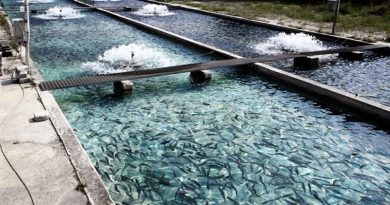Opportunities abound in Africa Apart-Hotel sector – experts
“When looking at the growth of Africa’s apart-hotel sector, it’s clear that the market still brims with opportunity,” says Wayne Troughton, CEO of specialist global hospitality and tourism firm, HTI Consulting.
“Whilst the apartment hotel space is relatively new territory in Africa, with only a handful of significant players, great possibilities exist here,” he says. “Particularly when one considers the increasing numbers of multinational companies seeking offices in Africa’s fast-growing, opportunity-rich cities and, of course, more and more corporate travellers looking for cost-effective alternatives to traditional, shorter term hotel accommodation.”
“As these African economies continue to grow and develop, demand for long-stay accommodation is expected to rise. This highlights the opportunities for international operators to enter partnerships with local and regional developers to foster and improve the quality of long-stay accommodation in Africa,” states Troughton. Cities such as Nairobi, Lagos, Accra, Addis Ababa, Abidjan, Dakar, Dar es Salaam, Abuja and South African cities such as Johannesburg and Cape Town are experiencing marked growth in this sector,” he says, “We’re watching this space in anticipation that apart-hotels, particularly in key business nodes, will continue to rise across the continent.”
In 2015, there were 8,802 serviced apartments in 102 locations in Africa. By 2017, the numbers had increased to 9,477 serviced apartments in 166 locations, a rise of 7.6% and 62.7%. This shows the rising level of interest in the sector, according to The Global Serviced Apartments Industry Report 2016/17.
Big-name international hotel brands such as Marriott, Radisson Hotel Group and Best Western have seen the growth opportunity in the hotel apartments and residence space (with most viewing it as a brand extension), specifically as it relates to the African continent.
Notable new developments include, amongst others, Accor’s Adagio and Ascot’s Residences in Accra, the Novotel Suites in Marrakesh, Radisson Residences in Nairobi, ApartCity in Windhoek, Marriott’s Executive Suites in Addis Ababa, its Residence Inn in Accra and Lagos and its 200-unit Executive Apartments in Melrose Arch, Johannesburg. The past year has also seen the opening of Best Western’s The Executive Residency and The Mövenpick Hotel and Residences, both in Nairobi.
“The apart-hotel or hotel apartment market is moving from niche to mainstream and proving extremely successful with <80% occupancy and <50% GOP margins,” says Andrew McLachlan, Radisson Hotel Group’s senior vice-president for development for sub-Saharan Africa. “The business model is often less risky and more attractive for investor/developers, particularly given the shortage of this type of product supply in key location across sub-Saharan Africa and the lack of recognised brands currently active in this segment of the market.”
“Radisson Hotel Group’s approach to this growing market segment is to offer a ‘brand extension’ to our existing and well-known brands,” he explains. “For example, if the property consists of apartments only, we position it as Radisson Blu Serviced Apartments, so guests understand it’s to the quality and standard of an upper upscale Radisson Blu and an apartment with select hotel services,” says McLachlan. “These services and facilities are tailormade to the location and market demand. The second, and more popular, option offers hotel rooms and apartments. In this situation we brand and position the property as Radisson Blu Hotel & Apartments,” he says. “We currently have a number of Apartment Hotels open and as well as under development in the following cities; Cape Town, Maputo, Nairobi, Douala Abidjan, Abuja and Lagos.”
The appeal of apart-hotels, or apartment hotels and long-stay hotels, as they are known, is that they’re typically designed to combine the privacy of a furnished, fitted apartment with the convenience of hotel services. Many apart-hotels feature in-house gyms and restaurants and/or bars. Guest ‘rooms’ generally consist of four areas – bedroom(s), bathroom, kitchen and living room – and are often more spacious than traditional hotel rooms. This means guests can prepare their own meals or order in, as opposed to dining out, thereby saving money and being more time-efficient (working lunches, or dinners). They often do their own laundry, watch TV, or enjoy a drink on their balcony.
Apart-hotels can also prove a more an affordable option for frequent long-staying business travellers. “We’re on average 25% more cost-effective than other hotels of comparable size and quality,” stated Marc Wachsberger, Managing Director of South Africa-based The Capital Hotels & Apartments, speaking to Bizcommunity.com in February this year.
The Capital Hotels & Apartments has a substantial presence in Sandton, Johannesburg, with five serviced apartment offerings. The group also has properties in Durban and Cape Town. It has an interesting business model; “We design our buildings backwards – we start by researching what a corporate client is prepared to pay per night, then decide on what we invest in the hotel or apartment,” says Wachsberger.
“Apart-hotels tend to work well in more established markets where hospitality infrastructure is extensive and the full mix accommodation options are well represented,” says Troughton. “This category of hotel is relatively new and it’s important for brands to be established in the various markets across Africa before exploring this type of offering.
“The benefits are there though,” he states, “in the right location the apart-hotel or hotel residences offers developers flexibility to compete in more than one sector within a single development. As apart-hotels are considered more of a real estate product with similar attributes to apartments, whilst hotels are more specialised assets, this also gives investors a potential exit option to sell off the units or the entire development as apartments, if the development does not prove to be successful,” he states. “For companies too, it makes financial sense to send employees to a well-priced, fully serviced apart-hotel that is comfortable, convenient and caters is flexible to their needs.”



